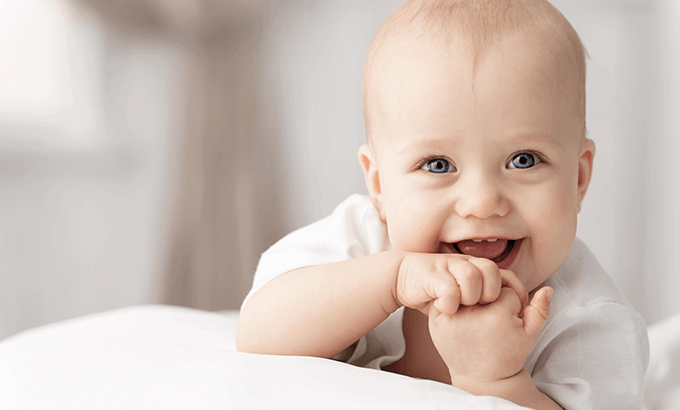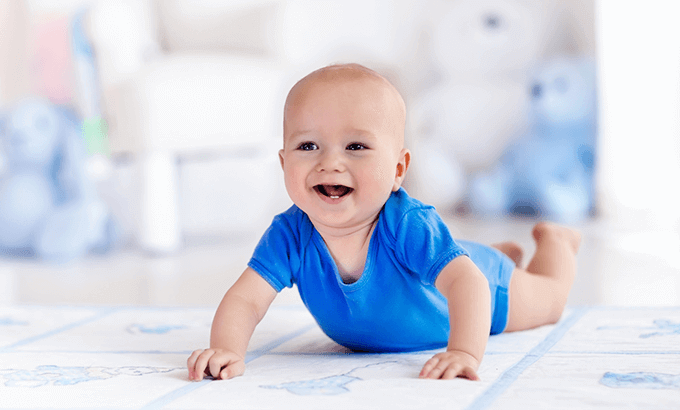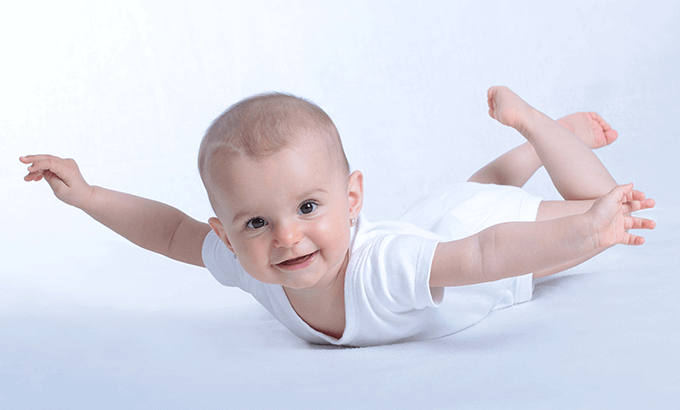Signs of a Happy Baby
Signs of happiness can be more mysterious in infants than unhappiness. The baby may not even find the first true happiness milestone by smiling until the end of the first month.
Infants
The look and sound of your face relaxes your newborn. It can be frustrating when you’re greeted with an empty, sleepy look when you smile and relax, but it’s a good sign! “At this point, babies don’t have the capacity to express positive emotions outside of peaceful gazes,” says Linda Acredolo, co-founder of Baby Signs, Inc. “Either they cry or they don’t.” When he turns to you and looks you in the face, he just says, “Life is good.”

0 – 3 months:
Your baby is happy at this age when she meets her basic needs. You talk to it, feed it, change its nappies and put it to sleep.
1–3 months
“Somewhere between four and 10 weeks, babies start smiling spontaneously rather than reflexively,” says Carey Chronic, M.D., a pediatrician in Ventura, California. Your baby’s smile is like a reflex at first. For example, have you ever seen your baby smile in his sleep? It comes from an inner comfort. But now, “they’re reacting directly with something that someone is doing,” says Linda Acredolo, founder of Baby Signs.

Between 3 – 6 months/
As they start laughing as well as smiling, the world of babies becomes more exciting. As Kayta Rose Norris discovered, they were thrilled by the funny sounds and touches. “My daughter likes it when we tickle her legs while her feet make noises”. In about 6 months, the element of surprise became a big excitement. “They get tickled when you raise their expectations,” says Acredolo, as in an old-fashioned game of peek-a-boo.
Between 4 – 7 months:
At first, what you call “speech” is actually nothing more than a series of consecutive sounds. Babies hear these sounds by listening to you. They can now communicate their feelings out loud. Athena Vouloumanos, principal investigator at the Baby Cognition and Communication Laboratory at New York University, says that when babies start making sounds in the higher range, it’s to interact with you.

Between 12 and 18 months:
Near the age of 1 year, children gain a sense of humor. They may even wait for a diaper to laugh or talk to an unexpected object. “Research on the development of humor in children shows that doing silly things with objects is a source of satisfaction in general. Mine is trying to put her baby’s shoes on her own foot, which is really funny, ”says Acredolo.
